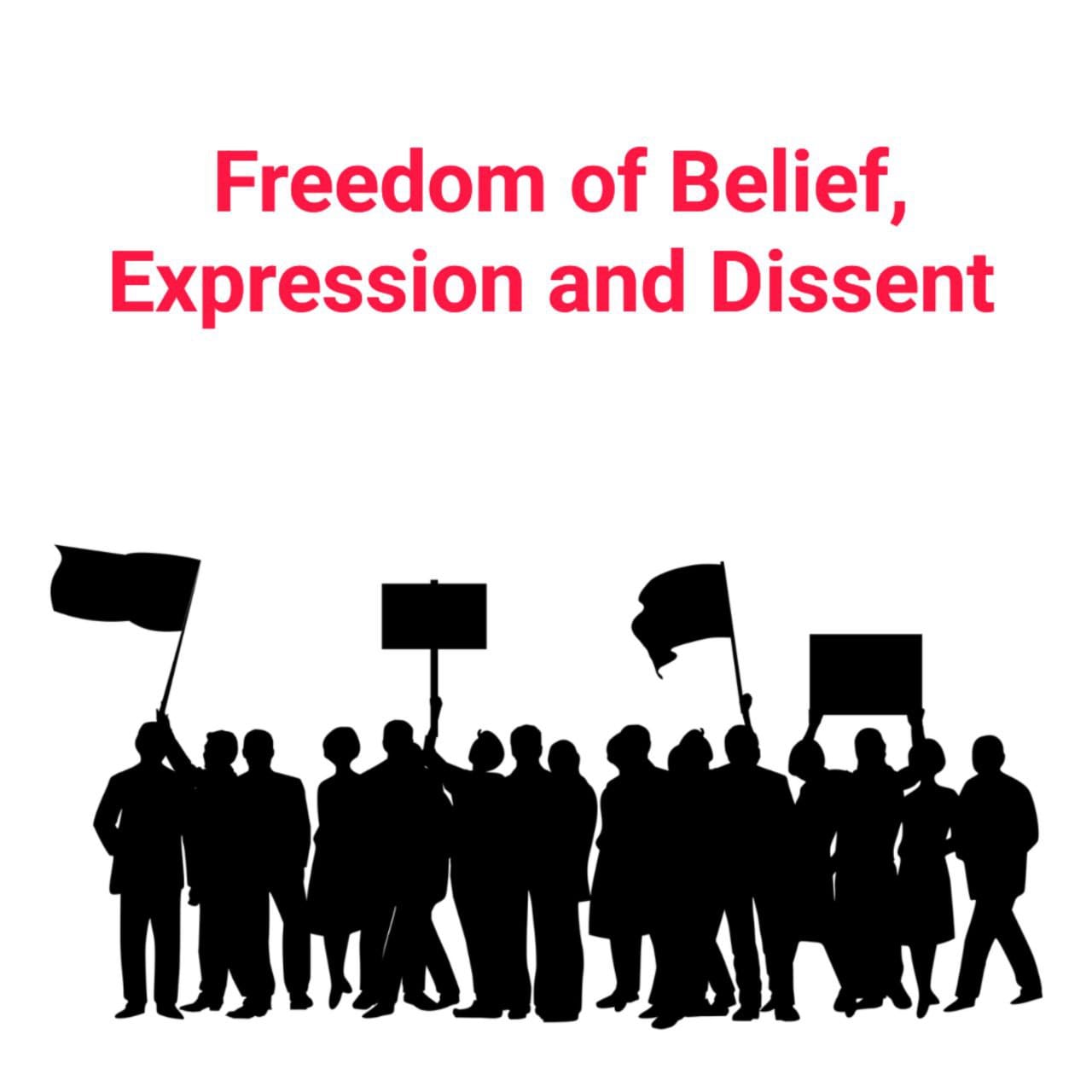Freedom of Belief, Expression, and Dissent are foundational principles in democratic societies and form the bedrock of human rights frameworks worldwide. These freedoms enable individuals to think, express themselves, and challenge ideas without fear of persecution. Here’s a breakdown of each principle:
1. Freedom of Belief
- Definition: The right of individuals to hold, adopt, or change personal beliefs, whether religious, philosophical, or ideological, without coercion.
- Importance: It ensures that people can live according to their moral and spiritual convictions without interference from the state or other groups. This freedom protects religious diversity, atheism, and philosophical thought.
- Challenges: In many parts of the world, people face persecution or discrimination based on their beliefs, particularly in authoritarian regimes or societies where there is little tolerance for religious or ideological diversity.
2. Freedom of Expression
- Definition: The right to freely articulate one’s opinions, ideas, and thoughts through speech, writing, art, media, or other forms of communication.
- Importance: A vibrant, open society relies on individuals being able to discuss, debate, and share ideas. It is essential for innovation, political participation, and social change.
- Limitations: Although vital, freedom of expression is not absolute. Many societies place limits on it to prevent harm, such as incitement to violence, hate speech, or defamation. The challenge lies in finding a balance between protecting free speech and preventing harm to individuals or groups.
3. Freedom of Dissent
- Definition: The right to disagree with prevailing ideas, policies, or authorities and express opposition without fear of repression or punishment.
- Importance: Dissent is a core aspect of democratic governance, allowing for checks and balances. It ensures that power is not concentrated and helps to protect against tyranny or oppression. Dissent enables reform, protects minority viewpoints, and facilitates social progress.
- Challenges: In many countries, dissent is seen as a threat to the established order and is often met with censorship, imprisonment, or violence. The protection of dissent is a critical measure of how free a society is.
Interconnections
These three freedoms are closely linked. The freedom to believe in a particular ideology necessitates the ability to express those beliefs and challenge opposing views. Similarly, dissent is an essential part of free expression—it ensures that alternative perspectives can challenge dominant narratives or policies.
International Protections
Many international treaties and legal frameworks protect these rights, such as:
- Universal Declaration of Human Rights (1948): Article 18 protects freedom of thought, conscience, and religion, and Article 19 covers freedom of expression.
- International Covenant on Civil and Political Rights (ICCPR): Reinforces similar rights and adds a layer of protection against state interference.
Modern Issues
- Censorship: Governments or corporations restricting content in the media, online platforms, or through laws that stifle freedom of expression.
- Religious Persecution: Religious minorities in many countries face systemic discrimination and violence.
- Protests and Dissent: Crackdowns on protesters, journalists, or opposition figures in authoritarian regimes.
Maintaining a balance between these freedoms and the responsibilities that come with them remains a crucial and ongoing challenge in modern societies.

